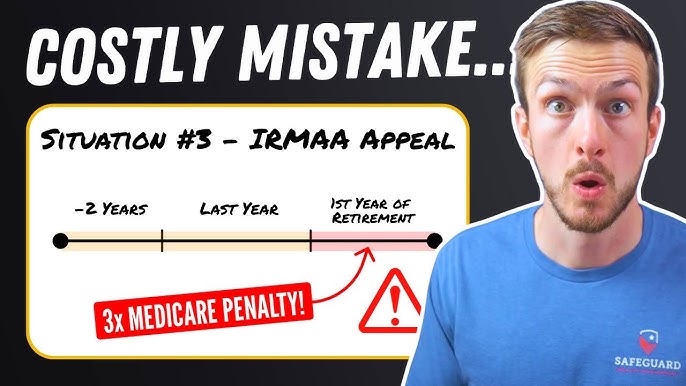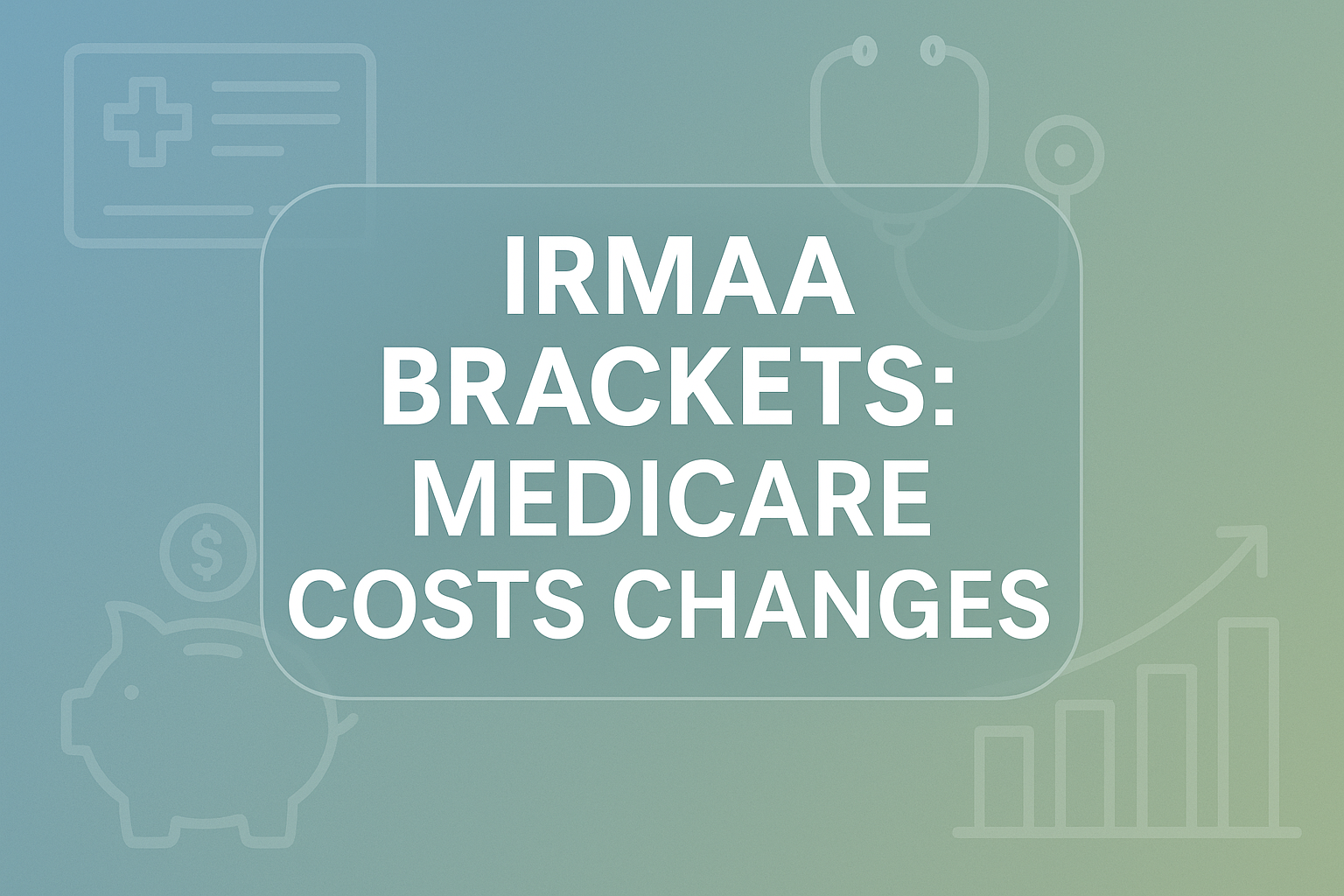The relationship between irmaa brackets and modified adjusted gross income
A Comprehensive Guide to Browsing IRMAA Brackets and the Appeal Process
Browsing the complexities of the Income-Related Monthly Adjustment Amount (IRMAA) can be a complicated task for Medicare beneficiaries. Recognizing how revenue limits influence costs is crucial for reliable financial planning. Lots of people might not understand the implications of higher profits on their health care costs. As they explore the nuances of IRMAA and the appeal process, they might uncover important approaches to handle their expenses more efficiently. This guide will light up the course forward.
Understanding IRMAA: What It Is and Exactly how It Functions
The Income-Related Monthly Adjustment Amount (IRMAA) is an essential element of Medicare that influences beneficiaries with higher earnings. This modification is created to make certain that people that gain above a certain threshold contribute even more in the direction of their Medicare Component B and Component D costs. The IRMAA runs on a gliding range, meaning that as a beneficiary's income increases, so does their premium amount. This technique intends to advertise equity in the Medicare system by distributing expenses according to earnings levels.
The Social Safety Management figures out IRMAA based upon the beneficiary's customized changed gross income from 2 years prior. If individuals discover themselves dealing with an unforeseen increase in their premiums as a result of IRMAA, they may have choices for appeal. Understanding the nuances of IRMAA is crucial for beneficiaries, as it directly impacts their monthly medical care expenses and economic preparation associated to Medicare coverage.
Earnings Brackets and Their Effect On Medicare Premiums
While numerous recipients rely upon Medicare for essential medical care coverage, income braces considerably affect the premiums they pay for Component B and Part D. The Centers for Medicare & & Medicaid Services (CMS) establishes these brackets based upon modified adjusted gross revenue (MAGI) from two years prior. As recipients' revenue levels increase, so do their costs, often causing greater costs for those making over certain thresholds.
For 2023, people earning over $97,000 and couples making over $194,000 face raised costs, with prices escalating with numerous tiers. This structure aims to make certain that higher-income beneficiaries contribute more towards the price of their protection. As a result, understanding these earnings braces is important for recipients, as it directly affects their economic planning and medical care access. Understanding of exactly how earnings degrees impact Medicare costs can assist recipients browse their choices and stay clear of unanticipated expenditures connected to their health care protection.
Exactly How IRMAA Is Calculated: A Step-by-Step Breakdown
Comprehending just how IRMAA (Income-Related Monthly Adjustment Amount) is calculated is vital for Medicare beneficiaries dealing with raised costs. The calculation begins with the beneficiary's customized changed gross earnings (MAGI), which includes modified gross earnings plus tax-exempt rate of interest. This earnings is examined based upon the most recent tax obligation return, commonly from 2 years prior.
The Social Safety Administration (SSA) categorizes recipients right into different IRMAA brackets, each matching to a specific MAGI variety. As earnings boosts, so does the premium change, resulting in higher monthly prices for Medicare Component B and Component D.
Beneficiaries may find their IRMAA quantity on their Medicare Premium Expense. It is vital for people to remain educated concerning their earnings standing, as changes can influence their IRMAA estimations and eventually their healthcare costs. Understanding these steps help in reliable financial preparation for Medicare beneficiaries.

Browsing the Appeal Process: When and How to Appeal IRMAA Determinations
Browsing the appeal procedure for IRMAA determinations can be an essential action for beneficiaries who think their income analysis is incorrect. Launching an appeal calls for recognizing the specific premises for contesting the IRMAA decision, which commonly revolves around revenue discrepancies or qualifying life occasions that may impact one's earnings degree. Recipients need to gather appropriate paperwork, such as income tax return or proof of earnings adjustments, to validate their claims.
The appeal must be submitted in contacting the Social Safety And Security Administration (SSA) within 60 days of the initial determination. It is very important to adhere to the SSA's guidelines thoroughly, consisting of supplying your Medicare number and clear information regarding the allure. Once sent, the SSA will certainly assess the situation and alert the beneficiary of their decision. If the charm is not successful, additional actions, consisting of a reconsideration demand or a hearing, can be sought to make certain all methods are explored.
Tips for Managing Health Care Expenses Connected To IRMAA
As beneficiaries face enhanced health care prices due to IRMAA, executing efficient approaches can assist manage these expenditures extra successfully. Examining one's income routinely is important; fluctuations might certify individuals for lower IRMAA braces. Furthermore, checking out alternatives such as Medicare Financial savings Programs or state aid can give monetary relief.
Recipients must navigate here also consider making use of precautionary services covered by Medicare to decrease unforeseen health care costs - appealing irmaa. Engaging with medical care companies to talk about therapy plans and possible options can further decrease costs
Taking full advantage of using Wellness Cost savings Accounts (HSAs) or Versatile Spending Accounts (FSAs) enables tax-advantaged cost savings for clinical prices. Last but not least, beneficiaries should remain informed about adjustments to Medicare policies and IRMAA thresholds, which can influence general healthcare expenditures. By proactively handling these facets, beneficiaries can reduce the economic burden related to IRMAA.
Often Asked Questions
Can IRMAA Impact My Social Security Advantages?


What Occurs if My Earnings Adjustments After IRMAA Resolution?
They may certify for a lower costs bracket if a person's income modifications after IRMAA determination. They can appeal the choice by look at more info offering documentation of the earnings change to the Social Protection Management for review.
Exist Exemptions for IRMAA Calculations?
There are minimal exceptions for IRMAA computations, primarily based upon life-altering events such as marital relationship, divorce, or fatality of a spouse (security brackets). Individuals might need to supply documentation to receive these exemptions throughout the evaluation procedure
How Usually Does IRMAA Change?
IRMAA adjustments annually, normally based on earnings changes reported to the IRS. These modifications reflect inflation and alterations in income thresholds, influencing individuals' premiums for Medicare Part B and Component D each year.
Can I Get Help With IRMAA Settlements?
Individuals may seek assistance top article with IRMAA payments through financial experts, social solutions, or Medicare sources. Different programs exist to help manage prices, making certain people can access needed health care without undue economic problem.
The Income-Related Monthly Adjustment Amount (IRMAA) is a crucial part of Medicare that influences beneficiaries with higher revenues. The IRMAA runs on a sliding range, suggesting that as a recipient's income rises, so does their costs amount. The Social Safety and security Management figures out IRMAA based on the recipient's modified readjusted gross income from two years prior. Navigating the charm process for IRMAA decisions can be a vital action for beneficiaries that believe their income assessment is wrong. Launching an allure calls for recognizing the details grounds for objecting to the IRMAA choice, which commonly revolves around income discrepancies or qualifying life occasions that might affect one's income level.